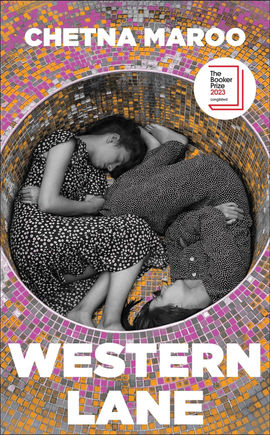
Western Lane: SHORTLISTED FOR THE 2023 BOOKER PRIZE
Synopsis
'(Western Lane) feels like the work of a writer who knows what they want to do, and who has the rare ability to do it.' - Guardian
'Few novelists write this simply and richly. With this gorgeous debut, Maroo blows most of the competition off the court.’ - Times
'Terrific . . . Slim, subtle, moving . . . a bold book and a quietly brilliant one' - Economist
Eleven-year-old Gopi has been playing squash since she was old enough to hold a racket. When her mother dies, her father enlists her in a quietly brutal training regimen, and the game becomes her world. Slowly, she grows apart from her sisters. Her life is reduced to the sport, guided by its rhythms: the serve, the volley, the drive, the shot and its echo.
But on the court, she is not alone. She is with her pa. She is with Ged, a thirteen-year-old boy with his own formidable talent. She is with the players who have come before her. She is in awe.
An indelible coming-of-age story, Chetna Maroo’s first novel captures the ordinary and annihilates it with beauty. Western Lane is a valentine to innocence, to the closeness of sisterhood, to the strange ways we come to know ourselves and each other.
Details
Reviews
‘(A) polished and disciplined debut … The beauty of Maroo’s novel lies in that unfolding, the narrative shaped as much by what is on the page as by what’s left unsaid.’
Ivy Pochoda, The New York Times
‘There is nothing hurried about squash … Maroo achieves something of this almost stillness, rhythmic quality and precision in her prose. Western Lane has a dreamy intensity … There are no villains in this exquisite novel (unless you include Death); everybody wants what is best and behaves with kindness. It could be syrupy-sweet, like Aunt Ranjan’s gulab jamun, but it isn’t.’
Norma Clarke, The Times Literary Supplement
‘(You) might expect Western Lane to feel formulaic, but it doesn’t. It feels like the work of a writer who knows what they want to do, and who has the rare ability to do it’
Caleb Klaces, Guardian
‘In the act of making books, writers make choices on every line, with every word. This is a debut in which Chetna Maroo gets every choice right, even the riskier ones … The writing is beautiful and wise; the feeling both hauntological and deeply human. In fact, as a debut it feels anachronistic in contemporary publishing in how unshowy the voice is: never shouting or baying or claiming; simply speaking, relating a transcendent time in a quartet of lives.’
Danny Denton, Irish Times
‘(This) quiet, elegantly compressed coming-of-age novel, just 160 pages long, operates most powerfully in the gaps outside the plot … Few novelists write this simply and richly. With this gorgeous debut, Maroo blows most of the competition off the court.’
Claire Allfree, The Times
‘In a soft and unobtrusive way, author Chetna Maroo explores the world of adolescence and grief in a manner that cleverly illuminates the inner lives of the sisters and their family.’
Mukund Padmanabhan, Hindu
‘“Western Lane” … is audacious in its quietness … This restrained plot is related in a boldly understated style. Tune into its wavelength, though, and you hear a symphony of emotion.’
The Economist
‘Written with tenderness, this impressive debut novel grounds a family’s loss in an honest examination of the workings of the world … Western Lane fills the reader’s heart and leaves it permanently altered.’
Hritik Verma, Hindustan Times
‘Tenderly exploring themes of loss, sisterhood and adolescence through the sport of squash, the book tells a captivating coming-of-age story that shines a light on the complexities of grief and the simple beauty that lies within the ordinary.’
Saachi Gupta, Vogue India
‘In Maroo’s deft narration — her showing every emotion over telling — and her use of startling images, the weight of grief slowly plants itself in the reader’
Rahul Singh, Federal
‘What’s atypical … is the marvellous beauty of this novel’
Saurabh Sharma, Outlook India
‘The culture of diaspora subtly surfaces through the crevices of (this) poignant tale’
Maninder Sidhu, Tribune
